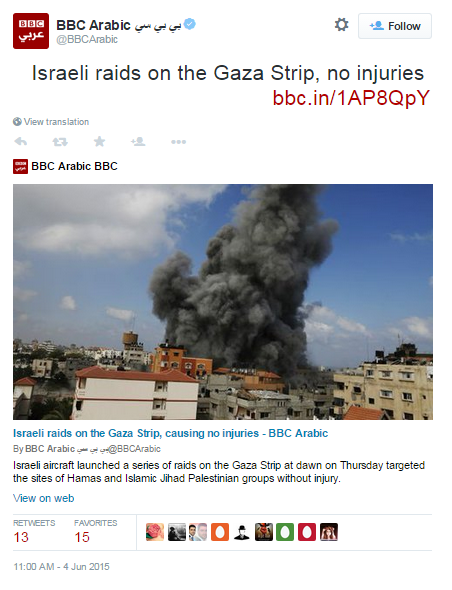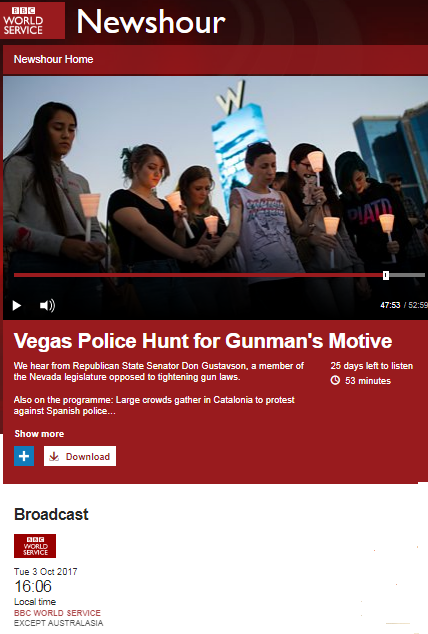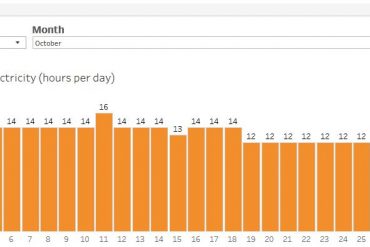On June 4th the 1.69 million people who follow the BBC Arabic Twitter account were sent the following (translated) context-free Tweet.
The link contained in that Tweet leads to an article on the BBC Arabic website which similarly informs audiences of “Israeli raids on the Gaza Strip, no injuries” in its headline. Like the Tweet, that article is illustrated using a picture which has nothing to do with the events being reported and, according to a reverse image search, appears to have been photographed in August 2014.
Only in the article’s fifth paragraph (out of a total of eight) did readers discover that something actually occurred before the Israeli airforce’s actions took place.
“The Israeli army announced on Wednesday evening, three rockets fall in open areas Council of settlements, “poet Negev” [Sdot Negev – Ed] , near Ashkelon, without final confirmation because of the failure to find remnants of the rocket.”
So what did actually happen on the night of June 3rd?
“Three rockets were shot at southern Israel from the Gaza Strip Wednesday night, police said, sending residents hurrying to bomb shelters for the second time in a little over a week.
The Israel Defense Forces said two rockets were fired from the Palestinian enclave and sirens were heard in Netivot and Ashkelon. Police later said three projectiles struck Israel.
The rockets landed in open areas in the Sdot Negev region bordering the northern Gaza Strip, according to media reports.”
Israel later responded to those missile attacks, which were claimed by a Salafist group.
“A radical Islamist Salafist group – the Omar Brigades – claimed responsibility for the attack, saying it was in response to Hamas killing an Islamic State supporter.”
The BBC News website’s Middle East page had not carried any coverage of that June 2nd incident.
“A spokesman for the Interior Ministry in Gaza said Hamas forces shot Younis al-Honnor dead after he resisted arrest at his home, where he had illegally stockpiled munitions. Witnesses said there was a shoot-out at the site.”
So, as we see once more, the BBC is aware of missile attacks against Israeli civilians being launched from the Gaza Strip but fails to report them on its English language website. However, Israeli responses to those attacks are reported on the corporation’s Arabic language website, but in ‘last-first’ style which focuses audience attentions on effect rather than cause.
This is the sixth missile attack since the ceasefire came into effect at the end of August 2014 and users of the BBC News website have not been informed about any of those attacks at the time of their occurrence.
It is time for the BBC’s funding public to be told why that is the case.
Related Articles:
Another Gaza Strip missile attack goes unreported by the BBC – in English





